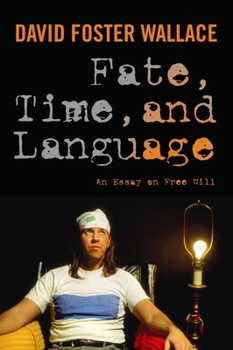Fate, Time, and Language: An Essay on Free Will
Select Format
Select Condition 
Book Overview
In 1962, the philosopher Richard Taylor used six commonly accepted presuppositions to imply that human beings have no control over the future. David Foster Wallace not only took issue with Taylor's method, which, according to him, scrambled the relations of logic, language, and the physical world, but also noted a semantic trick at the heart of Taylor's argument.
Format:Paperback
Language:English
ISBN:0231151578
ISBN13:9780231151573
Release Date:December 2010
Publisher:Columbia University Press
Length:264 Pages
Weight:0.76 lbs.
Dimensions:0.6" x 5.5" x 8.1"
Age Range:22 years and up
Grade Range:Postsecondary and higher
Customer Reviews
0 rating





